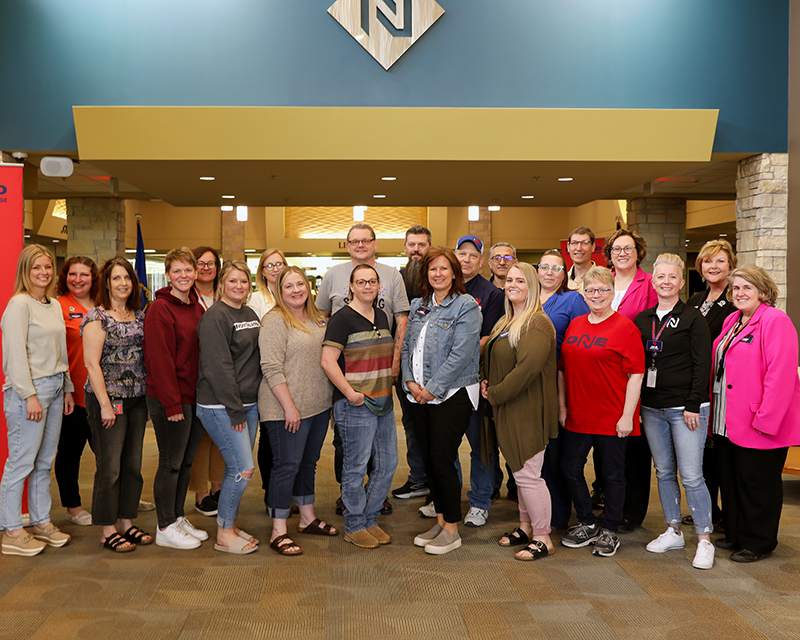
May 1, 2024
Northland Community and Technical College has been on a mission to find innovative and creative new ways to foster student success and expand access to affordable higher education. From launching an on-campus food pantry and its Northland Cares emergency resource fund, to hosting free farmers markets and offering more flexible course delivery options, Northland is determined to eliminate barriers to student success one by one.
The college’s most recent effort spearheaded by Northland President Dr. Sandy Kiddoo is its new partnership with the Caring Campus initiative, a program run by the nonprofit Institute for Evidence-Based Change (IEBC). IEBC is an organization dedicated to helping education stakeholders ensure student connectedness, use actionable data to make informed decisions and act to increase success for all students.
The mission aligns perfectly with Kiddoo’s students-first goal of making academic success at Northland accessible and welcoming to all. The program cost, however, posed a challenge.
“After I learned about Caring Campus from our student journey audit,” Kiddoo recalled, “I called Brad Phillips, the CEO of the IEBC and learned how costly it was to participate in the program. After months of working on funding strategies, I learned the ECMC Foundation was going to sponsor a cohort of rural colleges for Caring Campus… so we went through the application process with Brad’s help and were fortunate enough to be selected to participate.”
The Caring Campus program coaches college faculty and staff to implement intentional and campus-wide behaviors that increase student engagement and connectedness, which lead to improvements in racial equity and increased student success for all.
“We are a campus that cares,” Kiddoo said, “and this effort provides additional training and support to further organize our efforts to support our students, who we know will stay where they feel welcome and supported.”
Mindy Rist, Enrollment Office Coordinator, took on the role as program liaison for the initiative and has already begun organizing the first group of Northland staff who are eager to participate.
“The ultimate goal is for our students to know we truly care about them,” Rist said. “Through a series of workshops, we will work together to brainstorm ideas to build upon what we’ve already accomplished for the benefit of our students.”
Data shows that if students feel connected to the institution they attend, they are far more likely to graduate. IEBC’s own data have shown demonstrable improvements in classroom success when colleges follow through with Caring Campus initiatives — course completion rates have improved by as much as 15 percent.
“Being in a rural region, we already have a sense of community in our daily lives,” Rist said, “which definitely spills over into our professional lives. This initiative not only gives Northland a chance to enhance these traits on campus, but it also allows us to be a good example for other institutions.”
Some of the specific changes implemented by other colleges include simple steps like staff wearing name tags or staff welcoming students in parking lots during the first week of the semester. Kiddoo, with a growing track record of successful campus-wide initiatives, sees a natural symbiosis between Caring Campus and the many other programs recently implemented at Northland.
“Caring Campus complements our other student success projects by focusing on creating the experiences, environment and culture where students feel like they belong,” Kiddoo said. “This project blends nicely with our other innovative efforts to support student success, such as the food pantry, the upcoming college garden and our farmers markets, emergency grants for students and enhanced mental health services. We also recently added student-parent rooms, so students who are parents can bring their children to study on campus in a safe environment.”
Learn more about the Caring Campus initiative here: www.iebcnow.org/caring-campus.